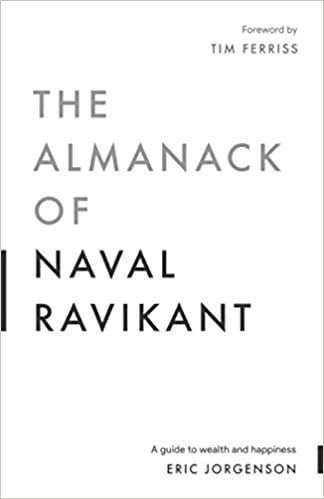This post is part of the 📖 The Almanack of Naval Ravikant series.
Today, I am still reading Rational Buddhism section of the HAPPINESS chapter from the book, The Almanack of Naval Ravikant: A Guide to Wealth and Happiness written by Author, Jack Butcher.
Getting rich is not just about luck; happiness is not just a trait we are born with. These aspirations may seem out of reach, but building wealth and being happy are skills we can learn.
So what are these skills, and how do we learn them? What are the principles that should guide our efforts? What does progress really look like?
The Book The Almanack of Naval Ravikant: A Guide to Wealth and Happiness is a collection of Naval’s wisdom and experience from the last ten years, shared as a curation of his most insightful interviews and poignant reflections.
Yesterday, I finished reading Philosophy section from the HAPPINESS chapter.
Part II
HAPPINESS
Rational Buddhism
The older the question, the older the answers.
The rational part means I have to reconcile with science and evolution.
Is meditation good for you? Yes. Is clearing your mind a good thing? Yes. Is there a base layer of awareness below your monkey mind? Yes.
The Present Is All We Have
There is actually nothing but this moment. No one has ever gone back in time, and no one has ever been able to successfully predict the future in any way that matters.
Literally, the only thing that exists is this exact point where you are in space at the exact time you happen to be here.
Like all great profound truths, it’s all paradoxes.
Any two points are infinitely different. Any moment is perfectly unique. Each moment itself slips by so quickly you can’t grab it.
“Everything is more beautiful because we’re doomed. You will never be lovelier than you are now, and we will never be here again.” —Homer, The Iliad.
Key Takeaways
-
I don’t think meditation will give me superpowers and those kinds of things. Try everything, test it for yourself, be sceptical, keep what’s useful, and discard what’s not.
-
Inspiration is perishable—act on it immediately.
Summary
- Rational Buddhism means understanding the internal work Buddhism espouses to make yourself happier, better off, more present and in control of your emotions—being a better human being.
That’s it for today. Tomorrow, we will read BONUS section from the HAPPINESS chapter from this great book.
Author(s): Eric Jorgenson
Part 32 of 33 in the 📖 The Almanack of Naval Ravikant book series.
Series Start | The Almanack of Naval Ravikant: A Guide to Wealth and Happiness - Day 31 | The Almanack of Naval Ravikant: A Guide to Wealth and Happiness - Day 33
